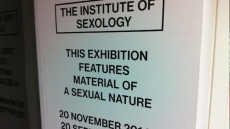Thinking you are good at maths and actually being good at it are not the same thing, a new research says.
About one in five people who said they are bad at maths, in fact, scored in the top half of those taking an objective math test.
But one-third of people who say they are good at maths actually scored in the bottom half.
"Some people really do not know how good they are when faced with a traditional maths test," said study co-author Ellen Peters, professor of psychology at Ohio State University.
Those people who think they are good at maths - even when their scores on maths tests do not show it - have a numeric competency that may be helpful in some real life situations.
For example, the new study found those who score high in subjective numeracy (those who think they are good at maths and enjoy working with numbers) are more likely than others to stick with a difficult math task.
People who were low in subjective numeracy were more likely to simply skip questions instead in the same math task.
"They just stop giving responses. We do not know why. It could be a lack of confidence with numbers or they are just not motivated," Peters noted.
This has important implications for everyday life.
"People who are low in subjective numeracy may not do their taxes on time or they may not make thoughtful choices on their health insurance because they just give up when faced with a lot of numbers," the authors maintained.
The study involved 130 people recruited at a university to take part in a four-day study. The study examined three different types of numeric competency - objective numeracy, subjective numeracy and symbolic-number mapping.
The results showed people approached each problem through their combined strengths and weaknesses on each of the three types of numeric competency studied.
The study was published in the Journal of Personal and Social Psychology.





